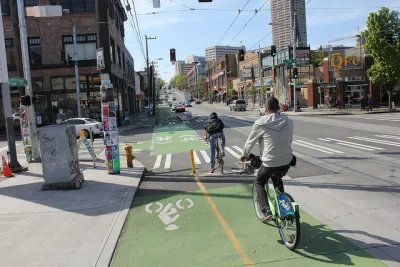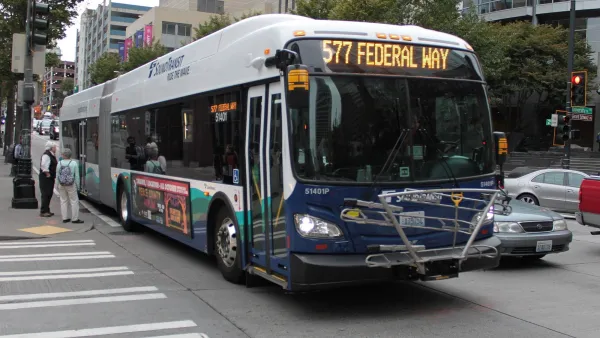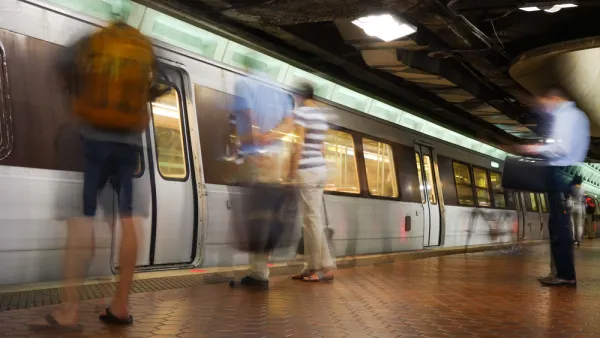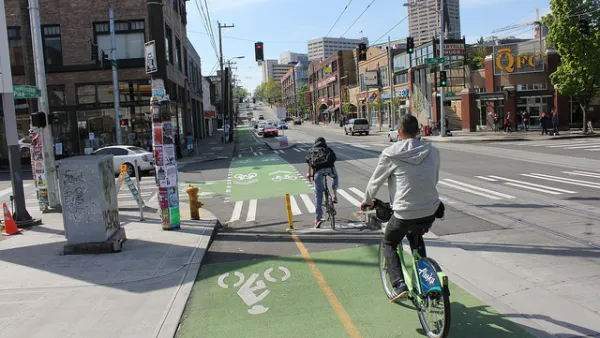Commute trips by bike are flat in Seattle, despite investments in high quality infrastructure. The city will have to do more for bikes to cut into the overall share of commute trips in the city of Seattle.

Gene Balk writes a column that begrudgingly acknowledges a troubling trend for bike advocates in Seattle: according to Census data, bike commuting is at a ten-year low in the city.
Last year, just 2.8 percent of workers who reside in the city of Seattle commuted to work by bicycle as their primary mode of transportation most days. That’s down from 3.5 percent in 2016, a statistically significant decline. And remarkably, you have to go all the back to 2007 to find a lower number — it was 2.3 percent that year.
What's troubling, writes Balk, is that the city has been investing in its bike infrastructure in the hopes of making biking a more attractive option.
It should be noted that the city of Seattle has achieved unparalleled success in the U.S. for reducing the share of solo car commuters and increasing the number of riders on buses and trains, so the city does have a track record of public transportation investments paying off in reduced car trips.
FULL STORY: Seattle bike commuting hits 10-year low, census data show

National Parks Layoffs Will Cause Communities to Lose Billions
Thousands of essential park workers were laid off this week, just before the busy spring break season.

Retro-silient?: America’s First “Eco-burb,” The Woodlands Turns 50
A master-planned community north of Houston offers lessons on green infrastructure and resilient design, but falls short of its founder’s lofty affordability and walkability goals.

Delivering for America Plan Will Downgrade Mail Service in at Least 49.5 Percent of Zip Codes
Republican and Democrat lawmakers criticize the plan for its disproportionate negative impact on rural communities.

Test News Post 1
This is a summary

Test News Headline 46
Test for the image on the front page.

Balancing Bombs and Butterflies: How the National Guard Protects a Rare Species
The National Guard at Fort Indiantown Gap uses GIS technology and land management strategies to balance military training with conservation efforts, ensuring the survival of the rare eastern regal fritillary butterfly.
Urban Design for Planners 1: Software Tools
This six-course series explores essential urban design concepts using open source software and equips planners with the tools they need to participate fully in the urban design process.
Planning for Universal Design
Learn the tools for implementing Universal Design in planning regulations.
EMC Planning Group, Inc.
Planetizen
Planetizen
Mpact (formerly Rail~Volution)
Great Falls Development Authority, Inc.
HUDs Office of Policy Development and Research
NYU Wagner Graduate School of Public Service





























